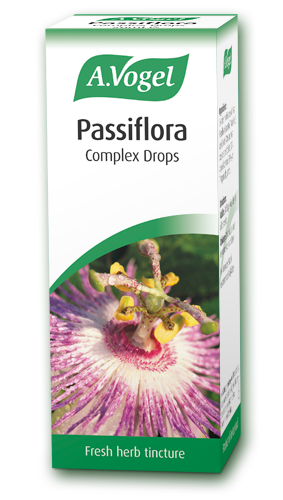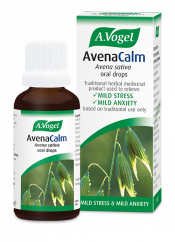Awareness. Acceptance. Action.
The Impact of Stress on Women’s Hormones and Steps to Healthy Action.
One of the joys of writing a blog is researching current news and popular articles about stress and the many health concerns which seem to be linked to it. I recently found (and put into practice!) an inspiring article and website focused on the fluctuations of hormones during the female cycle and the many ways in which it affects our daily life, mood, energy, emotions, concentration levels, libido etc.

This in turn got me thinking about the impact of stress on women’s hormones. Hormones work synergistically together, like an orchestra performing a beautiful piece of music. Imagine if just one of the instruments was out of tune, how the harmony of the whole orchestra would be negatively impacted. So it can be with hormones – if one goes out of balance then it can tip the scales for the others.
One of the functions of the adrenals is to produce hormones. This becomes particularly important during and after the menopause when the production of oestrogen and progesterone by the ovaries falls naturally.
The adrenals are required to be the back up, topping up our levels to help maintain balance. If we have been stressed over a long period, then our adrenals are less able to do this, responding instead to the more urgent incoming stressors. This is one of the reasons that stressed women can experience more challenging menopausal symptoms.
How stress can affect your menstrual cycle
Stress is also a common cause of irregular, missed or late periods.
Once again, the stress hormone cortisol comes into play here as it has a direct impact on how much oestrogen and progesterone, (the two primary sex hormones) are produced in the body. The duration, time and flow of the menstrual cycle are determined largely by the balance of these two hormones.
Researchers have also found that women in stressful jobs are at a 50 percent higher risk of short cycle length (less than 24 days) than women who do not work in high-stress positions www.huffingtonpost.com/2013/01/30/health-effects-of-stress-women_n_2585625.html
How stress can affect infertility problems
A study published earlier this year and the newspaper reports that followed, claimed that stress can double the risk of infertility in women. According to the NHS, infertility is a complex matter and further study is needed.
However, what we do know is that stress may be a contributing factor to infertility. Stress can affect the part of the brain (hypothalamus) which regulates hormones.
The hypothalamus controls the hormones required to release eggs (as well as testosterone levels in men). Under stress, women may ovulate late or not at all, making the normal time of the month to get pregnant, less predictable.

Whilst regular intercourse can help resolve this to a degree, raised cortisol (and adrenaline) levels resulting from medium to long term stress can also interfere with the hormones involved in the sexual response and mood, leading to an adverse effect on libido.
As if these factors alone are not stressful enough, there is a suspected link between pre-conceptual stress and miscarriage, further highlighting the importance of taking steps to promote calm and restore wellbeing as early as possible.
How stress can give you spots
Adult acne, according to studies is also on the increase, with stress being a significant contributory factor.
The stress hormone cortisol causes an inflammatory response (acne is an inflammatory condition) to blocked pores which may then erupt, stimulating pus production and inflamed swelling.
At the same time, the androgens (male hormones) which women produce via their adrenal glands, trigger excess oil production.

So what can we do?
The best course of action is to always try and ascertain the source of the stress in order to tackle it effectively. Spend time searching for and practising your favourite stress relieving techniques and do take a look at previous blog posts for inspiration and ideas.
Here are some additional tips which may help:
Avoid: a diet high in sugar, alcohol, caffeine and processed foods (typically those we reach for under stress). Don’t skip meals either as this causes blood sugar levels to rise and fall too quickly, triggering an inflammatory response in the body (acne, for example, is an inflammatory condition).
Stick to: an anti-inflammatory diet, with plenty of fruit and vegetables, whole grains, pulses, seeds and oily fish (which contain the essential fatty acid Omega 3). Add linseeds (which also contain Omega 3) to meals or drinks for extra fibre and to ensure that the bowel is working regularly allowing excess hormones to be excreted naturally.

Drink at least 2 litres of water a day and try a daily cup or two of cleansing Golden Rod and Knotgrass Tea. Take care with your choice of make-up, sticking as far as possible to brands available to health shops, using a good exfoliator (see link for recipes: naturalfacialrecipes.homestead.com/facescrubrecipes.html ) and avoiding heavy foundation which can clog the pores.
If your cycle has been disrupted for longer than a month or so, do seek advice from your Health Care Practitioner or GP. For extra support, the mineral magnesium may help relax muscles and ease tension,whilst Passiflora Complex may help soothe frayed nerves. If taken in the evening after supper, when we need to relax before bedtime, this combination may also encourage a better night’s sleep.
Provided you are NOT pregnant or taking any hormonal medication, you may benefit from a 3 month course of Siberian ginseng and Avena sativa to help maintain healthy energy levels, especially if you are under pressure.
You may also find our Menopause and PMS pages helpful for more detailed advice on hormonal issues.









